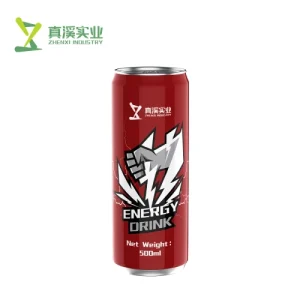Beverage suppliers need to manage their inventory effectively, ensuring they have product available when needed but also minimizing costs while still meeting customer demand. This means using more sophisticated technologies, strategic planning & effective logistical processes.
IMS (Inventory management systems)Advanced IMS - These play a key role in tracking stock levels, sales etc. MarketWatch reported in 2021 that more than 70% of beverage suppliers have turned to IMS for this purpose. By using barcode scanning and RFID technology, these systems return real-time data on the status of inventory stocks which in turn helps to decrease discrepancies and improve accuracy.
Another important element concerning inventory management is demand forecasting. Key to suppliers because of the power it holds in its hands, forecasting aids which prompts them with advance notice on how they can calibrate their inventory just right. For example, PepsiCo utilizes advanced algorithms and machine learning for demand forecasting leading to a 15% decrease in excessive stock. This prevents stock-outs from happening while minimizing overstock.
The inventory turnover ratio, a key performance indicator (KPI) of how often you sell and replace your supply over a given period. A high turnover ratio means that the company has managed its inventory well. For beverage suppliers, inventory turnover ratio is considered best in 4 to 6 times per year. This balance ensures that you not only have fresh stock, but it also helps minimize holding costs.
Just-in-time (JIT) inventory is a strategy used to reduce inventory holding costs. Instead of having goods stored away, suppliers can ship products just-in-time minimizing waste. JIT inventory practices, based on a study by Deloitte could reduce storage costs as much as 30%. However, adequate coordination with suppliers to prevent out of stocks is required for this strategy.
Safety stock is inventory buffer to protect from demand or supply chain mismatch. To do this, they conduct an analysis of historical orders and lead times in order to ensure appropriate levels of safety stock. E.g., a beverage supplier would keep 10% higher safety stock so they can cope with peaks throughout the year.

WMS Systems: WMS (warehouse management systems) are software programs that control storage, handling and picking processes in warehouses. Such systems can increase productivity by categorizing products according to criteria other than turnover rates or material sizes. For example, Coca-Cola uses WMS systems to expedite the picking process in its warehouses by up to 20%, thus boosting performance.
Cycle counting is essential for inventory accuracy. That process is to start counting some part of the stock each day or week in order for errors to show up and they can be sorted. According to a study by the Warehousing Education and Research Council, 97% of companies that cycle count regularly achieved an inventory accuracy rate.
Companies are bringing automation and robotics to warehouses more than ever. AGVs and robotic picking systems to increase inventory processing speed and accuracy Amazon Using Robotics in its warehouses that increased 20 % efficiency using and reduced labor cost.
The supply chain visibility necessary for effective inventory management So, beverage suppliers are the one that opts for supply chain management (SCM) software to know the real time tracking of their operations. They are able to see their shipments, manage relationships with vendors and react quickly when things go wrong. According to Gartner, companies with end-to-end supply chain visibility enjoy as much as a 25% incremental improvement in overall performance of the supply chains.
Inventory management is now also being done sustainably. Suppliers of beverages are incorporating sustainable packaging with less product wastage in their inventories. To put it simply, Heineken has set a goal to slash its carbon emissions by 80% in the next decade and eliminate these from across our distribution chain - including inventory management.
The great business leader Jack Welch stated, "Inventory is money sitting around in another form." Inventory Management takes that "money" and turns it into actual revenue by making some products are available to satisfy consumer demand in a cost-effective way.
To sum up, beverage suppliers control inventory by utilizing sophisticated technology and planning as well optimal logistical methods. Suppliers can perform well by using IMS, Demand forecasting, JIT inventory strategy, safety stock concept for WMS and automation techniques to increase productivity as per customer requirement. For a more in-depth look, check out Beverage Supplier. This complete solution helps suppliers to stay strong and responsive in the ever-changing market landscape.